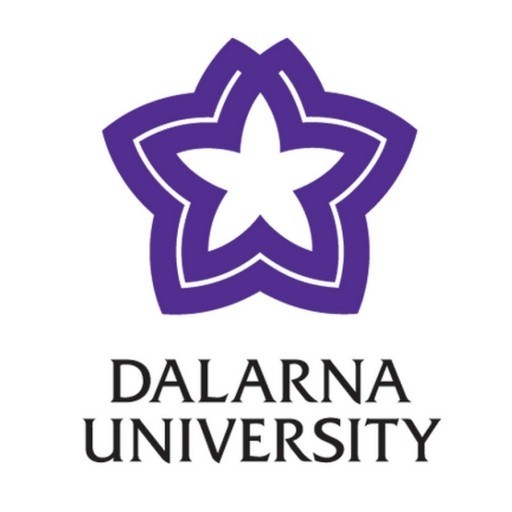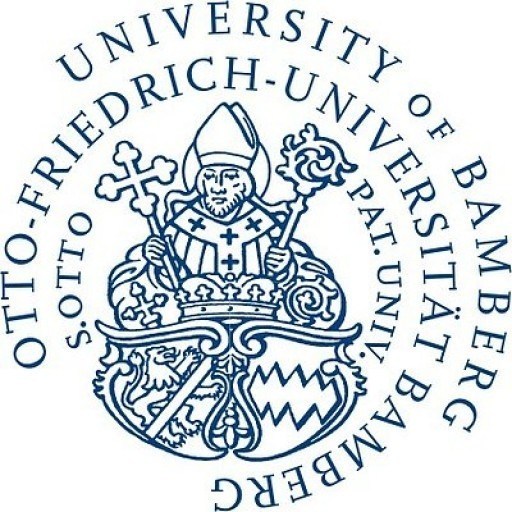Photos of university / #uniofbuckingham
The International Studies with English Language Studies program at the University of Buckingham offers students a comprehensive and multidisciplinary education that prepares them for a dynamic global career. This degree combines the core principles of international relations, politics, and cultural understanding with advanced English language skills, enabling graduates to communicate effectively across borders and cultures. Throughout the course, students will explore key themes such as global politics, international economics, regional studies, and cross-cultural communication, providing a solid foundation in understanding complex international issues. The program emphasizes critical thinking, analytical skills, and practical language proficiency, ensuring graduates are well-equipped to engage with international organizations, diplomatic services, multinational corporations, non-governmental organizations, and media outlets. The curriculum includes a mixture of lectures, seminars, research projects, and language workshops, fostering an engaging and interactive learning environment. Students have the opportunity to study abroad through exchange programs, gaining first-hand international experience and intercultural awareness. The program is designed for students who are passionate about global affairs and wish to develop their language abilities to a high standard. Graduates of this degree will leave with a deep understanding of international systems combined with excellent English language skills, making them highly competitive in the global job market. The University of Buckingham's supportive academic community and modern facilities provide an ideal setting for student growth and achievement. Enrolling in this program opens the door to diverse career paths in diplomacy, international business, journalism, policy analysis, and beyond, all grounded in a solid academic framework and practical skills development.
Detailed Course Facts
Application deadline There is no set deadline, however it is recommended to apply at least 3 months prior to the start of the term. Tuition fee- EUR 11970 Year (EEA)
- EUR 19530 Year (Non-EEA)
July: UK/EU: Year one: £9,610; Year two: £9,800; International: Year one £15,680; Year two £16,000 September: UK/EU Y1, Y2 £11,250; International Y1 £15,840; Y2 £16,000 January: UK/EU £11,250; International £16,000
Start date January,July,September 2015 Duration full-time 24 months Languages Take an IELTS test- English
Course Content
The Department employs a variety of teaching methods in different modules. Lectures and small group tutorials form the backbone of the teaching. Personal contact with members of the academic staff is considered to be essential if each students personal enthusiasm for their studies is to be stimulated. A range of activities is pursued within the tutorial groups depending upon the module. Some modules emphasise problem solving as a means of reinforcing and cementing the important ideas for example the module in Microeconomic Theory. Occasionally we use game playing to encourage discussion and understanding for example when competing groups of students try to control a computer model of the economy in Principles of Macroeconomics. Other modules place greater emphasis on writing short and accurate technical pieces (Welfare Economics) or longer more discursive papers.
English Language Requirements
IELTS band : 6 CAE score : 60(Grade C) TOEFL paper-based test score : 550 TOEFL iBT® test : 79
To study at this university, you have to speak English. We advice you to
take an IELTS test. More About IELTSRequirements
A-level: BBB
English language requirements
- IELTS: Average of 6.0 (with 5.5 or above in each component)
- TOEFL: (Internet-based) 79-80
- TOEFL: (Paper-based) 550
- Cambridge Certificate of Proficiency in English (CPE): C or higher
- International GCSE English as a Second Language: C or higher on extended curriculum
- London University GCE O level Syllabus B in English Language: C or higher
- Oxford-ARELS Examination Higher Level: Credit or Distinction
- Pearson Test of English Academic (PTE Academic): 50-57
Work Experience
No work experience is required.
Related Scholarships*
- Academic Excellence Scholarship
"The Academic Excellence Scholarship can provide up to a 50 % reduction in tuition per semester. These scholarships will be renewed if the student maintains superior academic performance during each semester of their 3-year Bachelor programme. The scholarship will be directly applied to the student’s tuition fees."
- Access Bursary
Bursary for UK students all subjects where the variable tuition fee rate is payable.
- Alumni Bursary
Alumni Bursary for UK Undergraduate students
* The scholarships shown on this page are suggestions first and foremost. They could be offered by other organisations than University of Buckingham.
Funding
Bursaries and scholarships can be a great way of financing your studies, and enabling you to achieve your potential. If you win a scholarship, you receive a discount on your fees and, most important, a scholarship on your CV will make you stand out to future employers.
How many bursaries and scholarships are available?
A number of scholarships and bursaries are awarded annually by the University which vary from partial fee to full-fee awards. These are thanks to the donations received from supporters of the University, including the Audrey Osborn Trust, The Headley Trust, Garfield Weston Foundation, Brunner Family Trust, RM & D Gregory, Eranda Foundation and John Desborough Memorial Bequest.
Applications are now closed for July and September 2012 applicants. We will be considering January and April 2013 applicants from Monday 17 September, the deadline for submission will be Friday 2 November.
The following Scholarships have specific entry criteria and / or deadlines:
- Sir Ray Tindle Scholarships
- The Paul E H Davis Awards Deadline for applications: 31 October 2012 for Exhibitions & flexible for Research Scholarship.
Entry requirements & procedure
It is the Universitys policy to ensure that bursaries and scholarships are awarded to those who might not otherwise have the opportunity to benefit from a University education. In the case of some scholarships, at the request of the donor, academic merit will also be taken into consideration.
All awards are subject to your meeting the Universitys academic entry requirements and abiding by the rules and regulations. To be eligible to apply for a scholarship you will need to have been offered a place to study at Buckingham. In the case of UCAS applications, if you are made an award you will need to select Buckingham as your firm acceptance choice.
Please note: these awards are made to new students only, current students are not eligible to apply.
International Studies with English Language Studies at the University of Buckingham offers students a unique opportunity to explore the complexities of global politics, economics, and cultural interactions while strengthening their English language skills. This interdisciplinary program is designed for students who are interested in understanding international affairs from multiple perspectives and who wish to develop their language proficiency to a high academic and professional standard. The course combines core modules in International Relations, Global Politics, and International Economics with dedicated English Language Studies, ensuring students are well-equipped to communicate effectively in complex international environments. The program emphasizes practical skills such as academic writing, public speaking, and intercultural communication, which are essential for careers in diplomacy, international business, media, or policy analysis. It provides a robust foundation in critical thinking, research methodology, and analytical skills, enabling students to evaluate international issues systematically. The curriculum is designed to be flexible, allowing students to choose elective modules that suit their interests, such as International Development, European Studies, or Middle Eastern Politics. Assessment methods include essays, presentations, exams, and research projects, fostering a comprehensive academic experience. The programme also encourages the development of language skills through immersive learning, language labs, and opportunities for study abroad or international internships, enhancing students' global employability. The University of Buckingham prides itself on small class sizes and personalized teaching, fostering an engaging learning environment where students receive tailored feedback and support. Graduates of the program are well-prepared to pursue careers in international organizations, government agencies, journalism, academia, or further postgraduate studies. The programme's combination of international focus and language expertise aims to produce graduates who are not only knowledgeable about world affairs but also possess the communication skills necessary to influence and operate effectively in an interconnected world.










